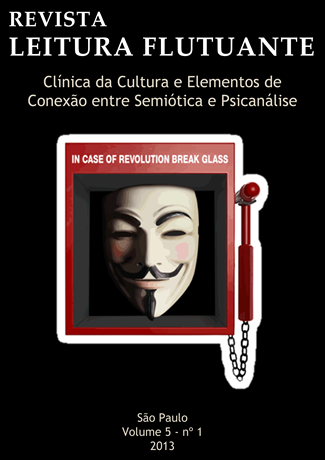MDMA, Love, Mourning and Melancholy. Experiences of Psychological “Compression”
Palabras clave:
Freud, MDMA, misuse, loss, melancholy, compression, narcissismResumen
This article is an exploration of the experience of working with young adult clients who have been traumatised as a result of misusing MDMA, often combined with alcohol. A single overdose may lower psychological defences and prevent the ability to achieve a healthy repression of unconscious conflicts, resulting in an immediate or delayed existential crisis. In response there may be what is described by the author as “compression” where euphoria and dis-inhibition combine to overwhelm the psyche. The paper also explores the current use of MDMA in PTSD research and its location in contemporary culture. It incorporates Freud’s perspective from Mourning and Melancholia into the clinical approach to working with this cohort, including perspectives on mourning, loss, narcissism and displaced reproach. The compression experience may be temporarily suppressed only to emerge in depressive symptoms and suicidal ideation.
Métricas
Citas
Freud, S. 1914. On Narcissism: an Introduction. The Standard Edition of the Complete Psychological Works of Sigmund Freud, Volume XIV (1914-1916): On the History of the Psycho-Analytic Movement, Papers on Metapsychology and Other Work, 67-102. Downloaded from www.pep-web.org.
Freud, S. 1917. Mourning and Melancholia. The Standard Edition of the Complete Psychological Works of Sigmund Freud, Volume XIV (1914-1916): On the History of the Psycho-Analytic Movement, Papers on Metapsychology and Other Works, 237-258 Downloaded from www.barondecharlus.com .
Gunja, N 2012. Teenage toxins: recreational poisoning in the adolescent. Journal of Paediatrics and Child Health,48: 560-566. Doi 10.1111/j.1440-1754.2011.02082.x .
Halpern, J, Sherwood, A., Hudson J., Gruber S., Kozin D. and Pope H. Jr., Residual Neurocognitive Features of Long-Term Ecstasy Users With Minimal Exposure to Other Drugs. Addiction. 2011 April; 106(4): 777–786. Published online 2011 February 15. doi: 10.1111/j.1360-0443.2010.03252.x .
Mithoefer M., Wagner M., Mithoefer, A., Jerome L., Martin S, Yazar-Klosinski B., Michel Y., Brewerton T. and Doblin R. Durability of improvement in post-traumatic stress disorder symptoms and absence of harmful effects or drug dependency after 3,4-methylenedioxy-methamphetamine-assisted psychotherapy: a prospective long-term follow-up study.Journal of Psychopharmacology. 2013 January; 27(1): 28–39.doi: 10.1177/026988 1112456611 .
Descargas
Publicado
Cómo citar
Número
Sección
Licencia
Proposta de Política para Periódicos de Acesso Livre
Autores que publicam nesta revista concordam com os seguintes termos:
- Autores mantém os direitos autorais e concedem à revista o direito de primeira publicação, com o trabalho simultaneamente licenciado sob a Licença Creative Commons Attribution que permite o compartilhamento do trabalho com reconhecimento da autoria e publicação inicial nesta revista.
- Autores têm autorização para assumir contratos adicionais separadamente, para distribuição não-exclusiva da versão do trabalho publicada nesta revista (ex.: publicar em repositório institucional ou como capítulo de livro), com reconhecimento de autoria e publicação inicial nesta revista.
- Autores têm permissão e são estimulados a publicar e distribuir seu trabalho online (ex.: em repositórios institucionais ou na sua página pessoal) a qualquer ponto antes ou durante o processo editorial, já que isso pode gerar alterações produtivas, bem como aumentar o impacto e a citação do trabalho publicado (Veja O Efeito do Acesso Livre).


